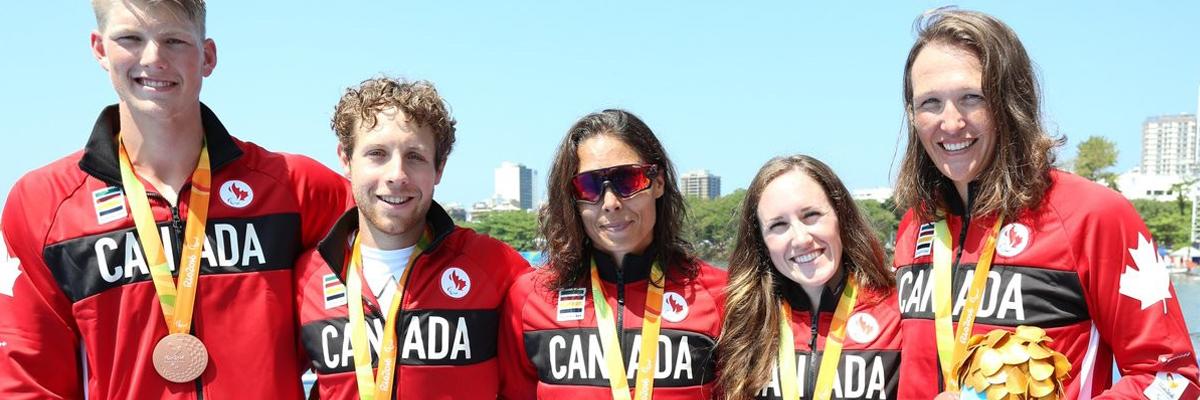"That's definitely my last competition. I am retiring from rowing for sure this time!"
I have said this countless times since I raced in Bulgaria in 2018, but here I am signing the athlete's agreement once again, subjecting myself to drug testing and getting back on the rowing machine!
If you have competed in a sport, you know why I keep getting drawn back – and, if you compete in a parasport, then you have an even better idea.
As someone living with partial sight, I love the feeling of being in a boat. It is a chance to move as fast as I can without fear. It is powerful and graceful and the philosophy behind parasport provides the right amount of support with the right amount of challenge. I don't find this anywhere else.
I started to consider returning to competition during a training session for a half marathon; I had a 90-minute run ahead of me and our Canadian Women's Eight had their qualification race for Tokyo at the same time. My former teammate who helped us win bronze in Rio was in that boat. I listened to her race live as I ran. It was so motivating; as they picked up their pace, so did I – my heart was racing as if I was there. As they crossed the finish line and secured their spot in Tokyo, all the feelings came flooding back – it is an incredible rush to work so hard for something and to succeed.
My husband and my two teenagers didn't have to think twice when I broached the subject – "Do it!" was the unanimous response.
But, the most important reason for me to go back is to help the program develop and mentor upcoming athletes. We need to grow our athlete base in Para rowing and in all para sports. As you follow my detour to the Tokyo Games, I hope to share why physical activity is so important when you are blind or partially sighted and how there is something for everyone…even if you think you're not athletic.
For the first 30 years of my life, I thought sports weren't for me. Apparently, I was wrong! Stay tuned.
